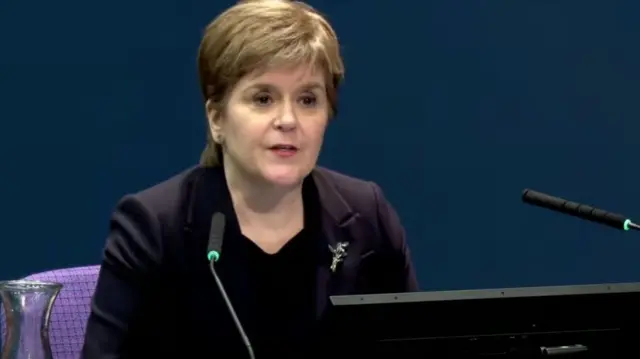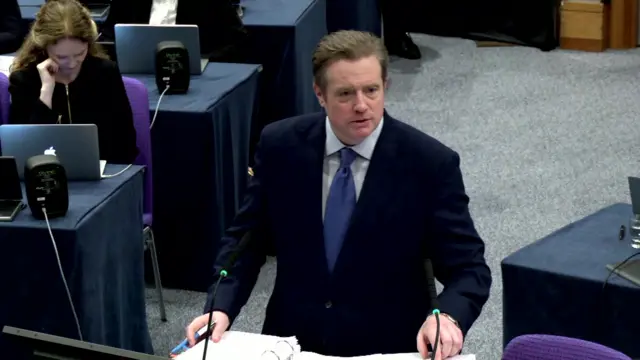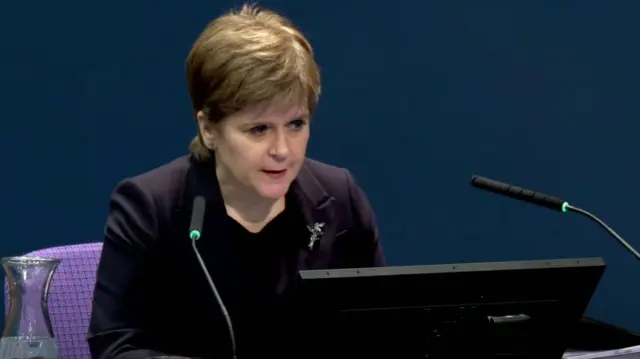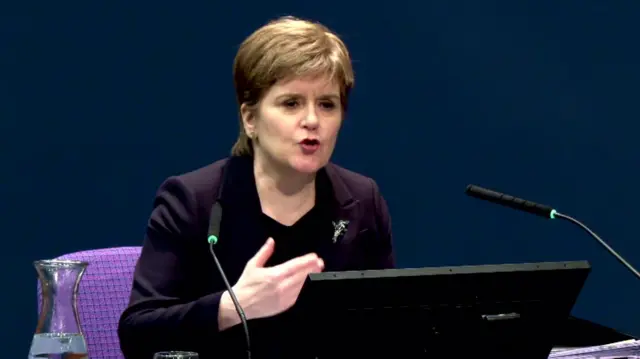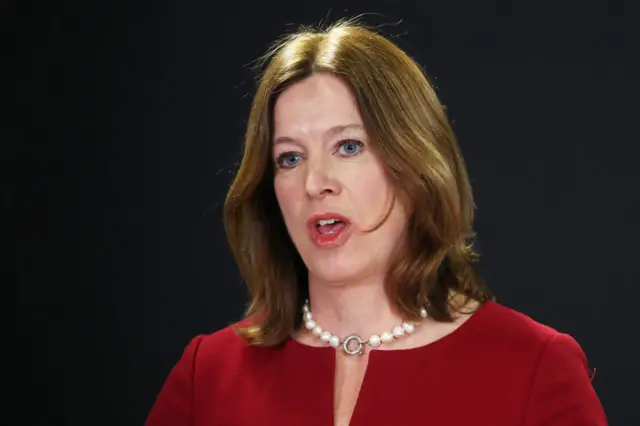
Sturgeon's views on her ability to communicate well seem unchangedpublished at 15:31 GMT 31 January 2024
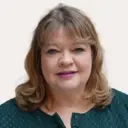 Kirsten Campbell
Kirsten Campbell
BBC Scotland political correspondent
Nicola Sturgeon was clearly annoyed earlier by the suggestion she was irritating the UK government by making announcements ahead of it.
She said she had made it clear in a Cobra meeting that the Scottish government had decided to ban mass gatherings. She also made the point that it was her decision to take.
The former first minister insisted she wasn't trying to steal a march on the UK government - but there was no point in keeping a decision secret once it had been made.
She suggested, perhaps, she wasn't too quick and the UK government was too slow.
Earlier in the inquiry we saw messages between Sturgeon and her then chief of staff in which she bemoaned the fact she didn't get more credit for being better at communicating with the public than the UK government. Her view doesn't appear to have changed.
